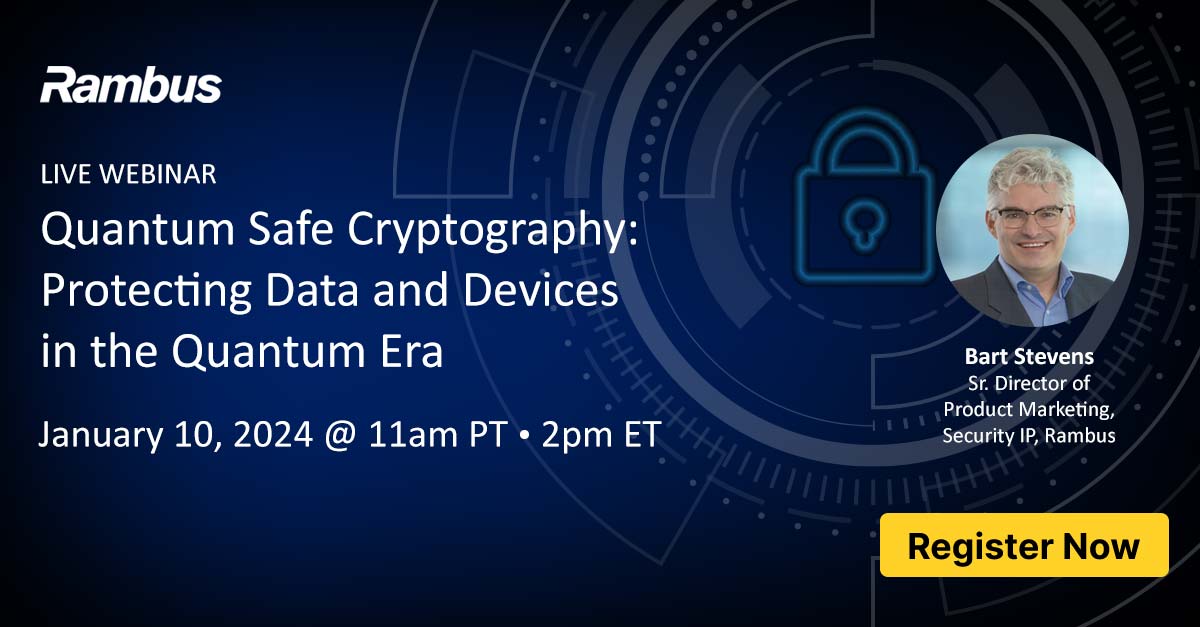The dawn of quantum computers sparks both excitement and concern. While powerful quantum computers have the potential to solve some of the world’s most challenging computational problems, their potential impact on security cannot be ignored.
Quantum computers leverage the principles of quantum mechanics, utilizing qubits instead of classic bits. This allows them to perform some classes of calculations much faster than even today’s most powerful super computers. Tasks that are currently considered computationally impossible would become trivial for a quantum computer, including breaking public key cryptography, which is the backbone of secure communication on the internet. New Quantum Safe algorithms, capable of withstanding attacks from computer computers, are required.
Adapting to the quantum threat involves not only developing quantum-resistant systems but also implementing them in a timely manner. The Rambus Quantum Safe IP portfolio, including the newly launched Rambus Quantum Safe Engine (QSE) IP core, is designed to support customers with the transition to Quantum Safe Cryptography starting today, protecting their past, current and future data in the quantum computing era.
The Rambus QSE IP is available as a standalone cryptographic core or comes integrated in Rambus Quantum Safe Root of Trust IP products. It supports the National Institute of Standards and Technology (NIST) draft standards for quantum-resistant algorithms (FIPS 203 ML-KEM and FIPS 204 ML-DSA), and provides SHA-3, SHAKE-128 and SHAKE-256 acceleration. For highly secure applications requiring additional protection against differential power analysis (DPA) attacks, a DPA version of the QSE IP is available.
If you are interested in finding out more about the security threat posed by quantum computers and the new algorithms that are set to protect against quantum computer attacks, join us for our upcoming webinar “Quantum Safe Cryptography: Protecting Devices and Data in the Quantum Era”.


Leave a Reply